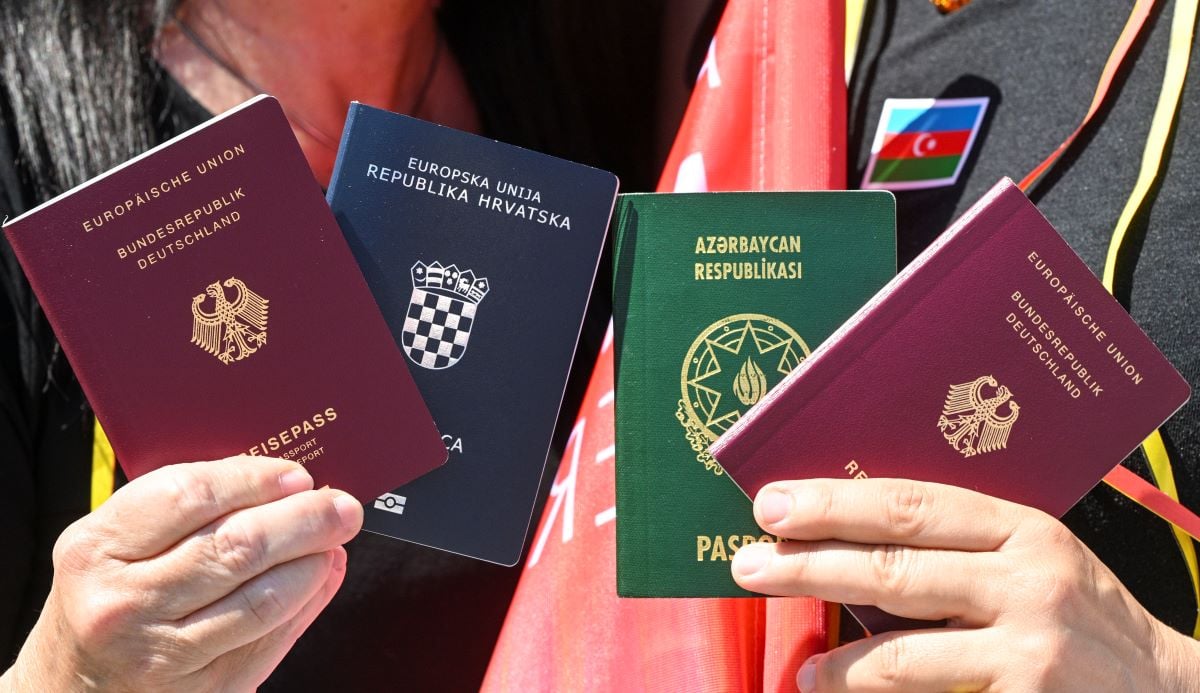For months, senior members of the CDU have been open about their determination to introduce a stricter migration regime in Germany.
In recent days, incoming Chancellor Friedrich Merz and future head of the chancellery Thorsten Frei, both of the CDU, have spoken publicly about their intention to take a tougher line “from day one”.
Following the approval of the coalition pact by all three parties, the new government is set to take office on May 6th.
Though many of the measures are set to target so-called “irregular migration”, the new black-red coalition has also set dual nationals in its sights and will be tightening some parts of Germany’s 2024 citizenship law.
These are some of the key migration policies the new government has in the pipeline.
Stricter controls on Germany’s borders
Speaking to journalists from the Funke Media Group this week, Frei announced that “anyone who tries to enter Germany illegally should expect to be stopped at the German border from May 6th.”
“No one can apply for asylum in the country of their choice,” he added. “Under European law, this must happen where someone first enters the European Union."
READ ALSO: Germany's next government could make it easier to strip citizenship from dual nationals
The CDU politician indicated that the future federal government had already opened discussions with countries including France, Austria and Poland, and that plans to “expand and intensify identity checks at Germany's borders (were receiving) a great deal of approval.”
According to the Federal Ministry of the Interior and Communities, “since the temporary checks were reintroduced at Germany’s borders with Poland, the Czech Republic, Austria and Switzerland, the Federal Police have detected approximately 52,000 illegal entries and refused entry to some 30,000 people.”
These stricter controls have also resulted in delays at the border for individuals and goods.
READ ALSO: Who is the new German minister in charge of immigration?
Crackdown on asylum and family reunification
At a small CDU conference on Monday, Merz announced that deportations would be carried out on a larger scale starting on day one of his chancellorship - echoing US President Donald Trump.
According to the future Chancellor, the new government will turn away people without entry permits at the border and repatriate migrants en masse if their applications for asylum are rejected.
Incoming Interior Minister Alexander Dobrindt (CSU) has pledged that the government will not only step up refusals at the border, but also suspend family reunification and carry out deportations to places like Syria and Afghanistan.

The government has already paused flights that were meant to transport Afghans at risk of Taliban persecution to Germany, drawing criticism from human rights groups.
Other plans include putting Ukrainian refugees on asylum benefits rather than the more generous Bürgergeld unemployment benefits.
Scrapping ‘express’ track to German citizenship
Introduced by the traffic-light coalition in 2024, the bulk of Germany’s dual national law is set to remain in place - despite the longstanding opposition of the Union.
However, the fast-track route to citizenship for well integrated foreigners will come to an end. Under this clause in the Nationality Act, people with at least C1 German and outstanding achievements in work, academia or social projects could apply for naturalisation after just three years.
Slammed as “turbo” naturalisation by the Union parties, the black-red coalition has pledged to end this route to citizenship.
For migrants married to German citizens, however, the three-year residence requirement will remain, and standard citizenship with B1 German will still be possible after five years.
READ ALSO: Germany to end three-year 'turbo track' for citizenship
Revoking German citizenship from ‘extremist’ dual nationals
In a more controversial plan, the new black-red coalition will consider stripping German citizenship from "terror supporters, antisemites and extremists" who also hold another nationality.
In the plans drafted so far, the parties specifically say they want to examine the possibility of withdrawing citizenship from dual nationals "under constitutional law". Currently, the constitution only allows for revocation of citizenship in very extreme cases.
The idea has been widely criticised as a move towards a "two-class" citizenship system in which people with a migration background are treated differently from other Germans.

Encouraging skilled labour immigration
Skilled immigrant workers are explicitly identified in the coalition agreement as a key part of the new government’s plans to drive economic growth.
In this spirit, the new government is set to keep – and even strengthen – the changes to the Skilled Immigration Act (FEG) that were introduced by the traffic-light coalition in November 2023.
To boost labour immigration, the parties are also planning to create a digital 'Work and Stay Agency' to make it easier for workers to move to Germany. In the coalition pact, the parties say the agency will "bundle and accelerate all processes relating to labour migration and the recognition of professional and academic qualifications" in Germany.
This will centralise the process of recognising foreign qualifications, which is currently carried out by the states.
In addition, the government is planning to set up a working group to identify ways to speed up immigration processes and will aim to complete recognise qualifications from abroad within eight weeks.
It will also establish special counselling at the Federal Employment Agency to assist people with foreign qualifications and work experience.
READ ALSO: How Germany is making it easier for skilled workers to get an EU Blue Card
How long will the border controls remain in place?
That’s still unclear - but the signs point to Germany, like neighbouring Denmark, attempting to make them a much more permanent thing.
As a Schengen state, Germany is one of 28 countries to have officially abolished border controls at their shared borders to allow for the free movement of goods and people.
However, in October 2023, Germany reintroduced “temporary” border checks on the Polish, Czech Republic, Austrian and Swiss borders, followed by checks on borders with France, Luxembourg, the Netherlands, Belgium and Denmark in September the following year.
According to the Schengen Borders Code, member states are allowed to reintroduce controls in the face of a serious threat to public order or security, “for a limited period of time and as a last resort.”
In their coalition agreement, the CDU/CSU and SPD agreed to continue controls at all German borders “in coordination with our European neighbours.” However, there continues to be disagreement between the factions about what “coordination” means.

Comments